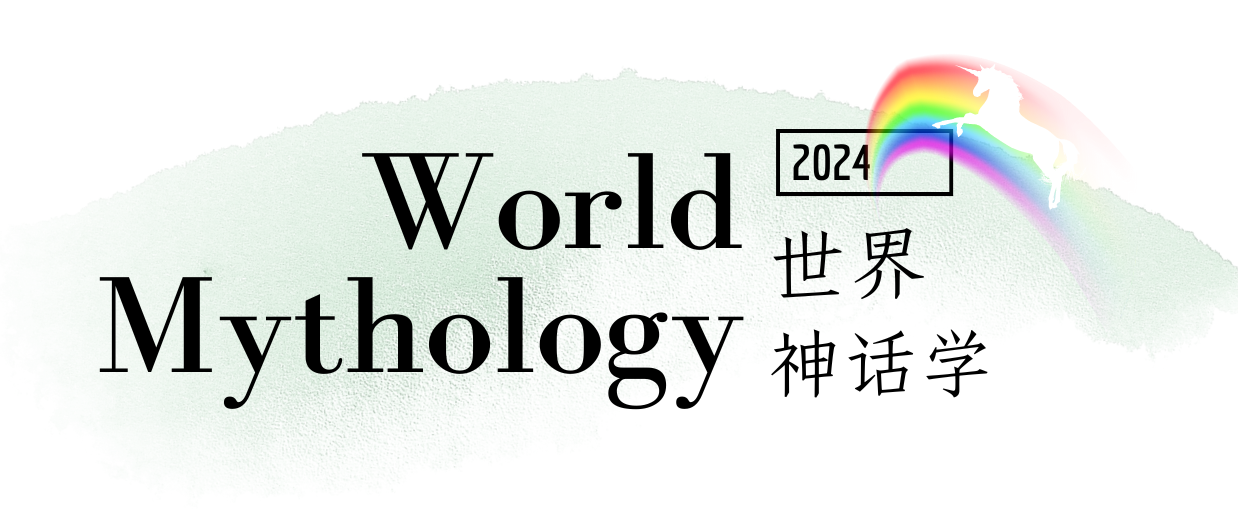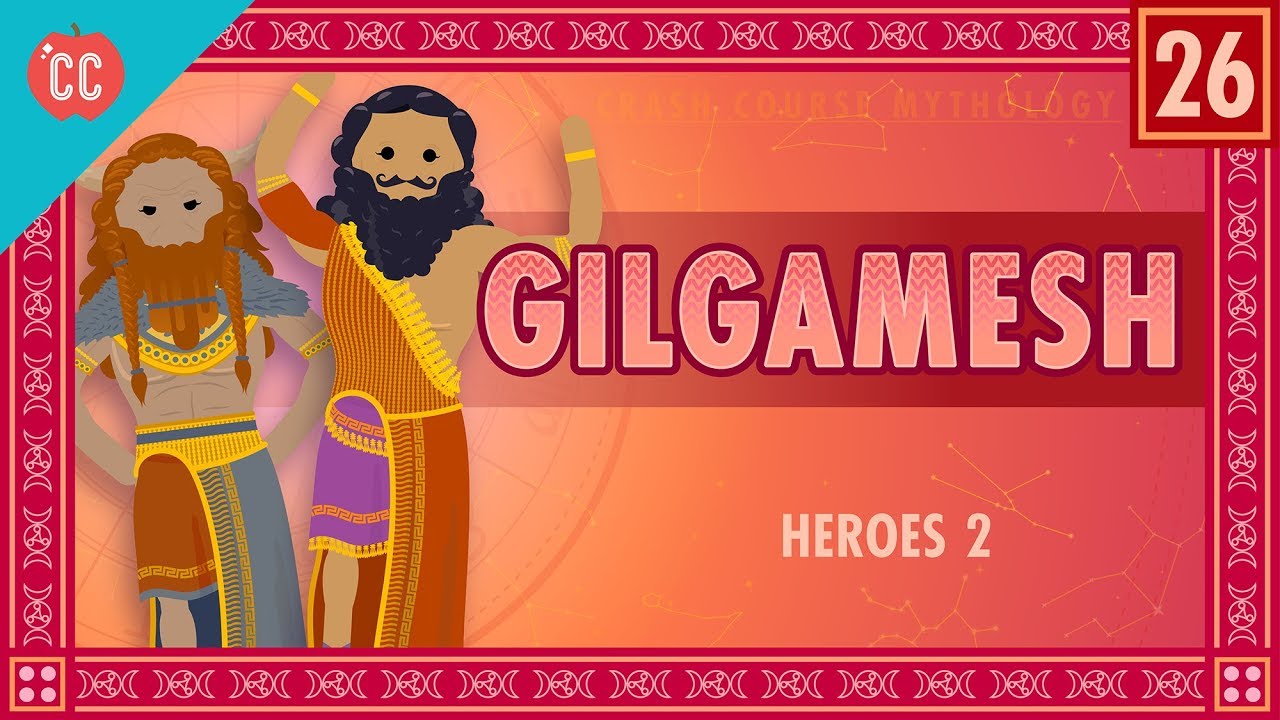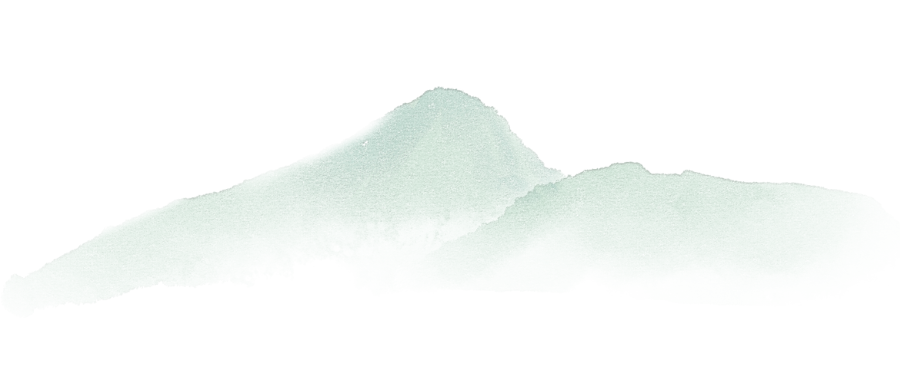
版权归Crash Course公开课所有,本文仅作读文学习使用,如侵权,请联系搬运工删除。
(26)
The Epic of Gilgamesh

Description
🌳 This week, we're continuing our discussion of heroes by talking about Gilgamesh(吉尔伽美什)[1], star of one of the earliest written hero stories, The Epic of Gilgamesh. Gilgamesh was a terrible ancient king who left his kingdom seeking adventure, and eventually on the prowl for immortality. Along the way, he checks pretty much all the boxes on the checklist of Joseph Campbell's Hero's Journey.
[1] Gilgamesh 吉尔伽美什
已知世界最古老的英雄史诗《吉尔伽美什史诗》(The Epic of Gilgamesh)中的主角,卢加尔班达(Lugalbanda)和女神宁松(Ninsun)之子,乌鲁克(Uruk)第五任君主,统治年间约在公元前27世纪。
在美索不达米亚神话中,吉尔伽美什是拥有超人力量的半神,三分之二是神,三分之一是人,拥有神的智慧及力量,但没有神的寿命。
🌳
1. This is Crash Course Mythology, and today we're returning to one of the world's favorite texts, The Epic of Gilgamesh.
This is one of the oldest written stories in the world and it's a great illustration of Joseph Campbell's monomythic hero's journey, introduced last episode. Plus it has sacred trees, lovestruck goddesses, and a fearsome demon named Humbaba(洪巴巴). To Sumeria!

🌳
2. The Epic of Gilgamesh is more than 4,000 years old. Written versions of the story date back to 2100 BCE, which gives it incredible historical value. For instance, several versions of the Gilgamesh story use both Sumerian and Akkadian[əˈkediən](古阿卡德语) names for gods, which shows how the story might have passed orally between the cultures of ancient Mesopotamia. This could also be considered syncretism['sɪŋkrətɪzəm](不同宗教、哲学或思想的融合), when two religious traditions combine over time.
🌳
3. In this episode, we're gonna work from a version of the epic written around 1200 BCE and see how Gilgamesh himself fits into the hero's journey. A fair bit of warning though: in this story there is a brief mention of rape.
At the start of our tale, Gilgamesh is the king of Uruk(乌鲁克城), and he's both a bad guy and a bad king. His subjects are unhappy, he disrespects the gods, and he's a serial rapist. So basically, he's the opposite of a hero. But Gilgamesh, like many "heroes" has divine parentage(出身,血统,家世), a goddess mom and a human king dad. Somehow this makes him two-thirds god and one-third man. Try not to think too hard about the math on that one. But either way, he's still mortal and that's hard for him to accept.
🌳
4. Eventually Gilgamesh has a number of crazy adventures, he chops down some famous trees and meets his best friend Enkidu(恩奇都)[1], who helps Gilgamesh become a better man and a better king. When Enkidu dies, Gilgamesh goes to the underworld to try to bring him back. He fails, however, and then must admit that he's human after all. In the end, Gilgamesh is considered a hero not just for his incredible deeds, but for coming to understand and accept his true nature.
[1] Enkidu 恩奇都
《吉尔伽美什史诗》里的重要人物。起先吉尔伽美什是乌鲁克城的统治者,作恶多端。他凭借权势,抢女霸男,强迫城中居民构筑城墙,修建庙宇。苦难中的人们祈求天上诸神拯救自己,天神就叫女神阿鲁鲁(Aruru)创造了一个半人半兽的勇士恩奇都,去与吉尔迦美什搏斗。吉尔伽美什最后险胜,他们都佩服对方的勇敢,于是结拜为友,一同去为人民造福,成为人人爱戴的英雄。在早期的苏美尔文字中,恩奇都是吉尔伽美什的仆人,但在《吉尔伽美什史诗》中,他们是平等地位的好友。
🌳
5. But okay, let's backtrack. Because along the way, Gilgamesh manages to check off nearly every single heroic scene that we learned about in the last episode. We're going to count 'em up, one by one. Play along from home! Every time you see a heroic scene, shout it out. But, uh, I'm pretty far away, so just make sure that you shout like really, really loudly.
So things get started in the epic when Gilgamesh and Enkidu first meet. Right away they decide to wrestle each other, and realizing that they evenly matched they reach a stalemate(僵局). This is a heroic trope(比喻,修辞,隐喻) in its own right, just not one of Campbell's: think Robin Hood(罗宾汉) and Little John(小约翰), Arthur(亚瑟王) and Lancelot(兰斯洛特), or Vin Diesel(范·迪塞尔) and Dwayne "The Rock" Johnson(巨石强森) in Fast Five.(《速度与激情5》)
🌳
6. After dusting themselves off and becoming BFFs, Gilgamesh and Enkidu return to Uruk to do kingly stuff, but Enkidu - who's used to living in the wilderness - he gets bored. Gilgamesh proposes that they head to the forest and face off against a terrifying demon adversary(对手), Humbaba. Yeah, it's just, it's not a very threatening name, I know. But trust me, he's a big deal, very terrifying, But, did you see what happened? This is what Campbell would call Announcement of the Quest.
🌳
7. To prep for the journey Gilgamesh and Enkidu get Supernatural Aid in the form of some special weaponry(武器). Then they have a quick the Refusal of the Quest as Enkidu, who knows the power of Humbaba, tries to warn Gilgamesh: "Humbaba, whose shout is the flood weapon, whose utterance(话语,言辞) is fire and whose breath is death, can hear for a distance of sixty leagues(里格,长度单位,约等于3英里或4000米) through the forest, so who can penetrate his forest? Debility(虚弱,衰弱) would seize anyone who penetrated his forest."
🌳
8. But Gilgamesh persists. Gilgamesh and Enkidu meet the goddess, Gilgamesh's mom, Ninsun(宁松). She's not particularly happy with her son's plan but she blesses Gilgamesh and adopts Enkidu. In the forest, Enkidu warns Gilgamesh about its gates, saying how afraid he is to Cross the Threshold, but once again Gilgamesh persists and the two venture forth into the darkness of the forest now deep in the Belly of the Whale. And we're going to follow them right in.
🌳
9. Creeping through the pine forest, Enkidu and Gilgamesh prepare to confront Humbaba. Before long, the earth shakes and the sky goes dark. Humbaba is upon them. Humbaba is massive, with the face of a lion, or, scales(鱼,爬行动物的鳞片), or vulture feet or a snake tail, depending upon which version you read. But, nonetheless, very fearsome.
Undeterred(顽强的;坚毅的;未被吓住的), Gilgamesh and Enkidu leap into battle. With supernatural aid from the god Shamash(沙玛什,美索不达米亚闪族太阳神), and some divine winds that bind Humbaba, Gilgamesh slays the demon and removes its head. If you're keeping score at home, this step is technically Atonement with the Father. Humbaba can be read as a terrible overbearing father figure that must be, well, not so much atoned with as, you know, beheaded.
🌳
10. After the glorious battle, Gilgamesh and Enkidu fell a bunch of sacred trees, build a raft, and sail home with Humbaba's noggin(俚语,头,脑袋). Once home Gilgamesh takes a bath and puts on some royal robes in anticipation of his Meeting with a Goddess. In this case the goddess is Ishtar[ˈɪʃˌtɑr](伊什塔尔,战神和爱神), who definitely has a thing for Gilgamesh. She says, “Come to me Gilgamesh and be my lover. Bestow upon me the gift of your fruit! You can be my husband, and I can be your wife.”
🌳
11. Gilgamesh refuses Ishtar's advances though, maybe he just wasn't ready to share his fruit, which makes this scene Woman as Temptress. Insulted, Ishtar sends the Bull of Heaven to kill Gilgamesh, who, with Enkidu, kills the bull. But Enkidu, who just does not know when to quit, slaps Ishtar with a chunk of said bull. Not smart, friendo. With that beefy slap Enkidu seals his fate. The life drains from his body, he gets sicker and sicker, and dies.
🌳
12. With Enkidu dead, Gilgamesh is at a turning point. He thought he'd finished his hero's journey. After travelling to the ends of the earth, defeating his "dad," and returning home with a gross bloody trophy, he put on robes! He was done! But now with the loss of his best friend, Gilgamesh feels yet another call to adventure. So he leaves Uruk to roam the country wondering, “Shall I die too? Am I not like Enkidu? Grief has entered my innermost being. I am afraid of death and so I roam open country.”
🌳
13. Gilgamesh is on another heroic quest, this time to overcome death and live eternally. He resolves to find Utnapishtim, who you might remember from a previous episode, he's the dude who was granted immortality after surviving the great flood. Along the way, Gilgamesh crosses the mountains that guard the rising and setting sun, and confronts monstrous scorpion men. Crossing the mountains means another Crossing the Threshold, and crossing this threshold means Gilgamesh is in the Belly of yet another Whale, walking through ten leagues of darkness.
🌳
14. Eventually, stumbling through the dark, Gilgamesh has another Meeting with the Goddess. This time it's Siduri(西杜里), the goddess of beer and wisdom, two things that don't often go together. Siduri tells Gilgamesh that to meet Utnapishtim, Gilgamesh must cross lethal(致命的) waters with the boatman(船夫) Urshanabi(厄沙那比). Gilgamesh thanks Siduri for the beer, sets off and finds Urshanabi. Immediately, Gilgamesh bashes Urshanabi over the head, which just that seems very very rude, I mean why would Gilgamesh treat Urshanabi so… Ur-shabbily.(shabbily:不体面地。搬运工猜测主持人这里玩了个谐音梗)
🌳
15. Anyway, I suppose maybe clobbering is the only way that Gilgamesh knows how to communicate with people who aren't goddesses. In addition to bashing Urshanabi over the head, Gilgamesh smashes all of the things of stone, which is unfortunate because it turns out that those things of stone are the tools Urshanabi needs to cross the water. So Gilgamesh has yet another task - he must cut down trees to make punting poles(撑船的撑杆). Finally Urshanabi shows Gilgamesh how to use the poles to cross the lethal waters and reach Utnapishtim, but when he does, Gilgamesh can't exactly celebrate.
🌳
16. Utnapishtim challenges him, he asks, “Why have you exerted(努力,用尽全力) yourself? What have you achieved? You have made yourself weary for lack of sleep, you only fill your flesh with grief, you only bring the distant days of reckoning closer. Mankind's fame is cut down like reeds in a reed-bed. Nobody sees the face of death, nobody hears the voice of death. Savage death just cuts mankind down.”
This isn't exactly the answer Gilgamesh was hoping for. Is Utnapishtim just gonna turn him away? Is he doomed to remain mortal? Gilgamesh persists, so Utnapishtim tells him his own story, about the flood, been chosen by Ea, the gods granting him immortality. And this is a revelation to Gilgamesh, the truth of immortality, and it serves as his Aspotheosis .
🌳
17. Utnapishtim decides if Gilgamesh really wants to be immortal, fine, but to prove his worth, he has to complete a Road of Trials with just one simple task, Gilgamesh must stay awake for six days and seven nights. No problem, Gilgamesh says, easy, he snorts(不屑地哼声), he plops(扑通躺下) down on a rock, and having walked into the darkness for over ten leagues, instantly falls asleep. Whoops!
Even though Gilgamesh failed his test, Utnapishtim gives him an out. If he really wants to avoid death, there's a secret plant, a root like a camelthorn. If he can track it down it'll bring him great rejuvenation, this will be his Ultimate Boon.
🌳
18. So does Gilgamesh get his magic plant? Yes and no. He manages to find it growing deep underwater, and by tying stones to his feet manages to sink down snip a sample and float back up to the surface. After this, he sets off for his Great Return to Civilization. But, after all that, on his way home, boon in hand, Gilgamesh decides that he should stop and take a bath. While he's soaking, a snake slithers up, sneaks behind him, curls around the plant, and disappears. As he towels himself off he sees the plant is gone and is just defeated. He sits down and weeps. Gilgamesh must return home empty-handed.
🌳
19. So - what is heroism? Gilgamesh is a mighty warrior who stands up to terrible monsters and discovers the secret of immortality, but who ultimately fails in his quest. Over the course of the story, he has almost all the experiences set forth in Campbell's monomyth, sometimes more than once. But is this what makes him a hero?
Really, Gilgamesh is kind of an ambivalent(矛盾的) figure. His journey has many successes, but also many failures. His bravery, or lack of respect, allows him to challenge and kill Humbaba, but also gets Enkidu killed. He proudly announces that he's up to Utnapishtim’s challenge but he simply isn't. At the end of the epic, Gilgamesh comes to terms with his limitations as a human. This completes the journey, achieving the final, crucial step: having the power and wisdom to live a good life, not an eternal life, but a good one. In Gilgamesh's case, that means one where you aren't a terrible king.
🌳
20. Eva Thury and Margaret Devinney sum up Gilgamesh's heroism pretty well: "Gilgamesh wants to escape human limitations, to get answers to questions not available to his contemporaries, and perhaps most importantly, he want to overcome mortality both for himself and others. But ultimately his story shows us that, despite his extraordinary talents, in these matters he is not different from other humans. Thus we see that it is precisely his human limitations that make him truly heroic."
🌳
21. So is he perfect? No. Is he even a role model? Definitely not. But can he serve as a symbol for an aspect of the human condition, of growing past mistakes and accepting limitations? Maybe. And perhaps that is what makes him a hero.
Next week we'll see just how many heroes might be lurking where you're not expecting them. Oh! And also we're gonna talk about an army of flying monkeys that I may or may not call "my pretties"! Thanks for watching, we'll see you soon. And, half serious question here, was Gilgamesh a bro?
To be continued…
未完待续…

